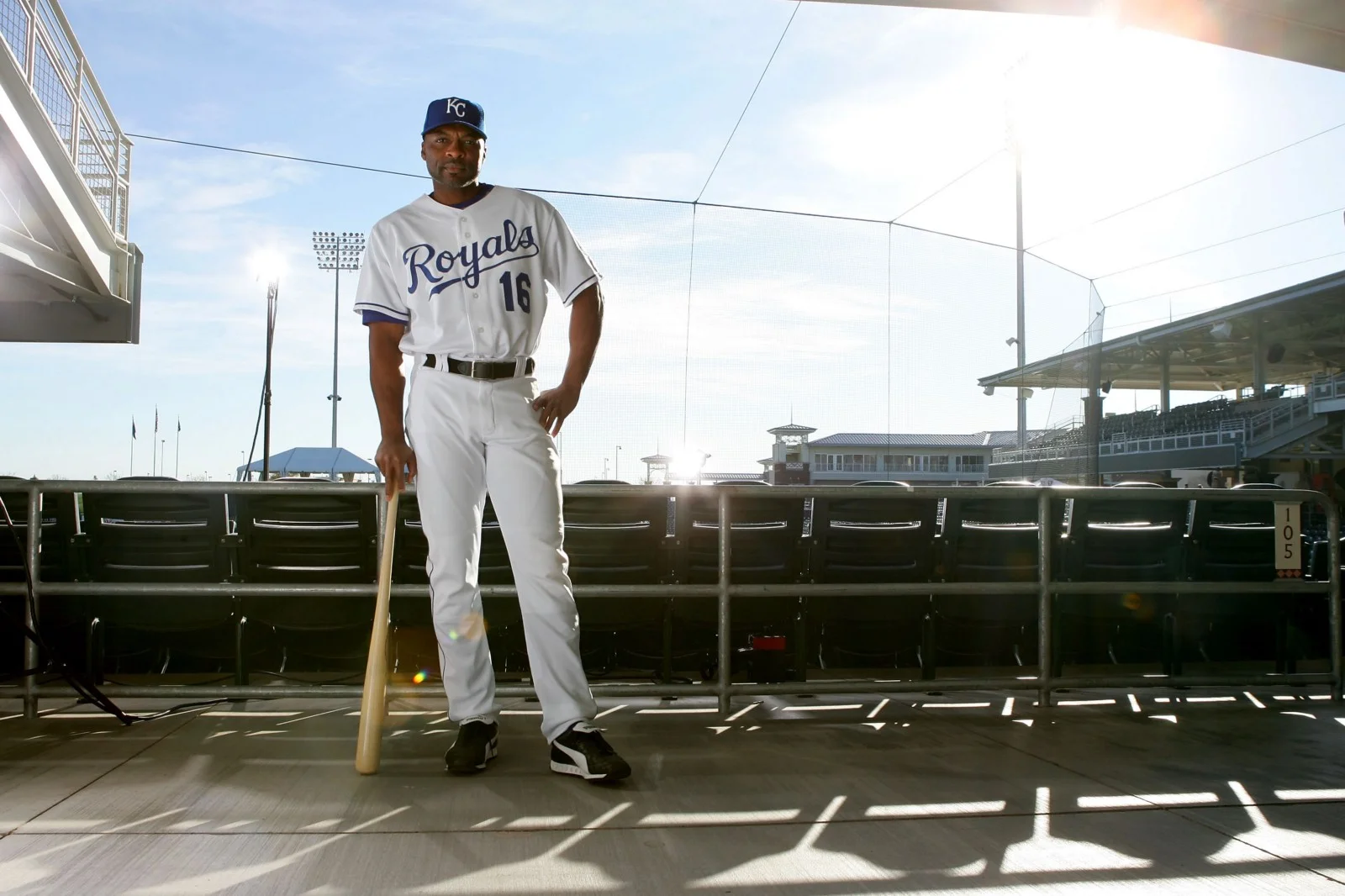
Professional Career
Reggie Sanders was born on December 1, 1967, in the small town of Florence, South Carolina and grew up in a close knit conservative Christian family. He is the oldest of Ernest and Thelma Sanders two children. Family is important to Reggie and he credits them for much of his success. Reggie’s Mom, Thelma, was there every step of the way over the years. Reggie’s, Dad has since passed, but his influence is still alive. Reggie grew up a Braves fan. His first ever baseball team experience was at the Boys and Girls club of Florence, SC. This is where Reggie passion for the game began.
His love for the game and competitive nature was evident from the start, as was his natural athletic ability. He had great hand-eye coordination, and he was bigger and faster than most of his teammates. During winter months Reggie and his friends would play stick ball anywhere they could find space. All he needed was stick and some aluminum foil.
Reggie started playing at the age of seven and by the time Reggie was eight, he was playing for a 10-and-under traveling all-star team. Every weekend was spent at a different diamond somewhere in South Carolina. The more competitive the environment the more Reggie thrived. He hated to lose, and worked exceptionally hard to make sure it never happened.
Reggie, also deemed “Sandman,” by former Atlanta Braves Manager Bobby Cox, retired from Major League Baseball in 2007 after a 20-year professional career with 17 of those years playing in the Major Leagues. During his Major League career, Reggie played on eight different teams, a National League All-Star and a World Series Champion. Reggie also played in 3 different World Series and appeared in 7 different postseason appearances. By any measure, Reggie had an illustrious Major League Baseball career.
As a native of Florence, SC and a proud graduate of both Wilson High School and Spartanburg Methodist College in South Carolina, Reggie began his career as a shortstop, but was moved to the outfield; a position he played the remainder of his career. Reggie had a breakout year in 1995 with the Cincinnati Reds when he led the team in almost every offensive category including: 567 plate appearances, 91 runs scored, 28 home runs, 36 doubles, 36 stolen bases, 99 runs batted in all while maintaining a .306 batting average and being selected to represent the Reds in the 1995 All-Star Game in Arlington, Texas. The Cincinnati Reds drafted Reggie Sanders in the seventh round of the Amateur Draft in 1987. Like all professional baseball players, Reggie began his professional career in the minor leagues beginning with the Rookie-level Billings Mustangs in the Pioneer League in 1988. After just over three years in the minor leagues, Reggie was called up to the Reds Major League team in August 1991, and he never looked back. In his 17-year Major League career, Reggie played 1,777 games; he had over 6,200 plate appearances with over 3,000 total bases, 983 runs batted in, 304 stolen bases, 305 home runs and a lifetime .267 batting average. He has the distinction of being one of only eight players in the history of Major League Baseball to both hit 300 or more home runs in his career while also stealing 300 or more bases. The only other players to reach that pinnacle in their career are Willie Mays, Andre Dawson, Bobby Bonds, Barry Bonds, Steve Finley, Alex Rodriquez and Carlos Beltran . Truly one of the magical milestones in any career, Reggie Sanders stands in an extremely elite class of players who were able to consistently demonstrate both power and speed.




